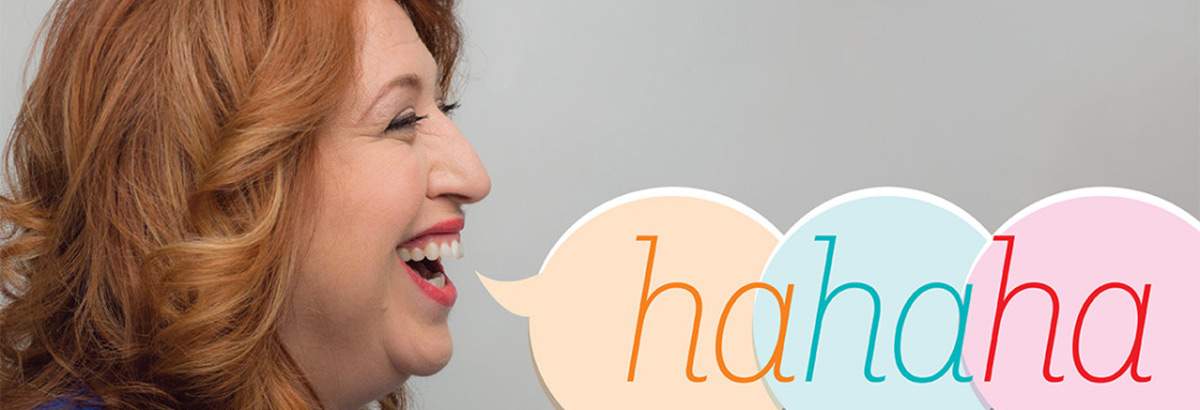“Do you know why you’re here?” the efficient orderly asked, looking down at his chart.
“Breast lift and tummy tuck,“ I said without a pause. He stopped writing and searched nervously through papers on his clipboard. “I’m just kidding,” I said. “I’m here for cancer surgery.” He looked surprised, then laughed and said there usually wasn’t a lot of joking around in pre-op. Strange, I thought. I guess not everyone thinks cancer is funny.
Three months before that, I was sitting on my porch pondering my mortality (in the way you can when it’s a beautiful day and nothing much else is going on) when the phone rang. I reluctantly stubbed out my cigarette and thought: I really need to quit. I should know better. I do know better. I will know better. As I answered the phone and lit up another cigarette, I thought, “This is good. The faster I smoke this pack, the sooner I’ll be done with this whole disgusting business.”
It was my doctor’s receptionist asking how soon I could come in to discuss my test results. I told her I was busy and it would be awhile, unless it was important. She hesitated. “The doctor really needs to see you.”
“It’s not cancer, or anything like that, is it?” I asked.
She merrily assured me it wasn’t, but repeated that I had to come in right away. I made an appointment for the next day, then called my mother. Sometimes you know, even when you don’t know.
The doctor showed me a line drawing of a woman with an “x” drawn over her pelvic area. She said that’s where the cancer is (hold on, did she say, “cancer”?). Come again? She seemed a little irritated that she was going to have to explain it all twice. “The ‘x’ is what we’re removing.” Huh? Someone was going to be removing something…from inside me? I burst out laughing.
This couldn’t be happening to me. I eat healthy food. I wish people well. I regularly walk by the gym. What the hell?
On the appointed day, I was wheeled into surgery and found myself surrounded by a crowd of bluemasked faces hovering busily overhead. Suddenly it occurred to me: who knew who these people were? They were masked. Had I actually seen their credentials? They could be terrorists for all I knew. My mind went into overdrive as I lay there feeling small and helpless. Then I broke the “fourth wall” and spoke to my doctor, who was performing my surgery. “Don’t forget,” I said cheerily, “you’re going to save my uterus for me so I can make a backpack out of it.” I had joked about that at my last appointment. “Probably more like a change purse,” she tossed back. I could hear the smile in her voice.
I spent the next few moments joking with the surgeon, inquiring if the anesthesiologist knew my friend so-and-so (he did), and bantering with whoever would talk to me. It’s not that I wasn’t scared. I was scared. But kidding around made me feel human and part of the proceedings. And since the proceedings did seem to involve me, somewhat, it felt good to be part of the team.
After the surgery I was taken back to my room, where I noted, with disappointment, that I’d gained a roommate. “What a drag,” I thought. I was in pain and just wanted to sleep and be left alone. It turned out we’d both had abdominal surgery and the nurse instructed us in how to put a pillow over our bellies if we coughed. She didn’t even mention laughing.
My comrade was a jolly gray-haired grandmother whose surgery was to be followed by chemo and other unpleasant events. Compared to her, I was lucky; I was just in for the surgery.
You wouldn’t think there would be a lot for us to laugh about, but whether it was the extreme vulnerability of the situation or the drugs, little by little we began to joke around. On the surface, things weren’t great, but we were both going through the same problems, so that alone became funny. Our inability to lift a pea, the bad food, even our pain—it all became fodder for a kind of gallows humor. It was so infectious that the nurses asked us to go and visit some of the other patients.
Between my new friend and my morphine pump, I was acing Post-op Surgery 101. Five days later, I was out of the hospital and landed with a thud, back in a world where everyone is supposed to be well.
When I revealed to my friends that I’d recently had cancer surgery, many responded with grim faces. I understood. They probably thought they were supposed to look grim. But what I hungered for was someone to laugh with me about what I was going through.
When my friends said, “Cancer can be beaten,” I said we might also want to try shooting or suffocation. (These jokes never went over nearly as well as I thought they should.)
I was alive. I felt pretty good about that. In fact, going through cancer made me feel more alive, because I appreciated things so much more. Everything was more vivid now. I hoped I might even be able to help make the process easier for other people.
I told anyone who’d listen that no situation forces us to lose our sense of humor. Even if we hurt, we can still laugh. It helps us feel human and connected to one another. It reminds us that we are all just one tiny pratfall away from tragedy ourselves. We don’t have to like it, but seeing the humor of our situation eases the pain and suffering that sooner or later we all encounter.
I was reminded of this when I accompanied my husband, a professional comedian, on a comedy tour. Shortly after we arrived at the “comedy condo” where we were staying, we discovered that the MC—and our new roommate—was a partially deaf, self-described “dwarf in a wheelchair.”
Until the moment the front door opened, we had no idea whom we’d be sharing with. It happened so suddenly that I didn’t have the opportunity to put the politically correct “don’t notice he’s a little person” barrier around my psyche. So when the taxi driver and club manager burst in carrying a very small man, a wheelchair, and a suitcase, a cascade of unexpected thoughts were triggered. I couldn’t really see anything funny about his situation, and I noticed my tendency to talk to him as if he were a child. It was going to be a long tour, I thought.
When it was time for him to go onstage, he struggled out of his wheelchair and, using a cane, proceeded to take what felt like a really long time to hobble, bowlegged, to the microphone. Then, pulling himself up to the mic he said, “I know what you’re thinking…and yes, I am Portuguese.” It brought down the house.
He could have chosen to dwell in the pathos of his condition, but instead he chose humor, turning difficult circumstances on their head and creating a situation where we could all laugh together. His humor leveled the playing field, reminding us that we all face difficulties…even the Portuguese.
The ability to find the funny pumps oxygen into adverse situations. It’s hard to cower when you’re laughing. It’s hard to be angry. And it’s hard to feel sorry for yourself, which can be the most paralyzing state of all. With humor, we can live our lives a little more honestly, and less fearfully, even though we can’t make bad things go away.
I’m glad I chose to laugh the day of my surgery. With every silly joke, I became more relaxed and felt present and accounted for. Just as they were about to put me under, I asked for a moment alone with my uterus, knowing it was about to be pulled from my body. I thanked it and wished it well in its future endeavors. Sleep came just as I wondered if I had time for one last cigarette. Then I remembered: I’d quit.






